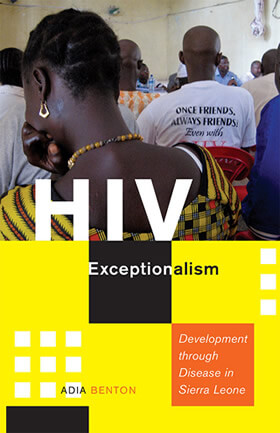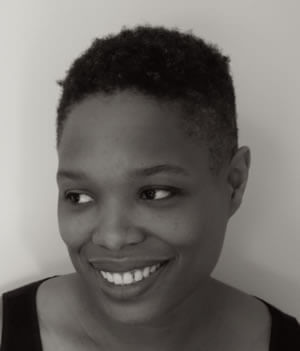Carson Prize 2017: Adia Benton
The 2017 Rachel Carson Prize goes to Adia Benton, for HIV Exceptionalism: Development Through Disease in Sierra Leone (University of Minnesota Press, 2015). The Award Committee reviewed 68 nominated works, to identify the strongest book in terms of its relevance to Science and Technology Studies, its overall scholarly quality, and its social or political relevance. We found it to be exemplary on all three of these criteria.
Benton’s work draws on tools of ethnography, medical anthropology, and STS to connect global health policy to the shaping of subjectivities and practices on the ground in Sierra Leone. Critics of health policy use the term HIV exceptionalism to describe the charismatic status of HIV/AIDS, implying a misappropriation of resources, mismatched with the actual distribution of disease and suffering. The term certainly applies in Sierra Leone, with its array of high-profile programs funded by international organizations and governments, despite its low HIV prevalence.

HIV Exceptionalism provides a powerful way of understanding the effects of global health policy on the lives of those who are its nominal beneficiaries. As a political intervention, it will inform struggles for a health policy that better reflects the desires and priorities of those beneficiaries.
2017 Carson Prize Committee: Daniel Breslau (Chair, Virginia Tech), Shobita Parthasarathy (University of Michigan), Tania Pérez Bustos (Universidad Nacional de Colombia).
Acceptance Statement
I was floored by the committee’s decision to award HIV Exceptionalism the Rachel Carson Prize this year. The book project grew out of nearly two years of fieldwork in Sierra Leone, and a few years more, working in health and development programs here in the US and in so-called developing countries. The book was an attempt to look simultaneously at systems and ideologies governing state care practices and the experiences of people living with HIV/AIDS. Working and living alongside my friends and colleagues in Freetown, Sierra Leone, opened my eyes to the predicaments and challenges they faced as they rebuilt their lives in a country devastated by a protracted conflict. Their ability to make a life, I observed, was also influenced by seemingly unremarkable, everyday practices of non-governmental and state agencies tasked with delivering care. These practices and their effects are open to anyone who dares to listen to individuals articulate their struggles, strategies and aspirations – and to anyone willing to endure the vagaries of navigating health bureaucracies and their material culture. I was fortunate to have been afforded the opportunity to be one of those anyones looking at this issue, and to have this opportunity transformed into reality. Among those who helped this transformation: my immediate and extended families; the University of Minnesota Press’ Quadrant Fellowship; colleagues at the University of Minnesota’s Institute for Advanced Study who provided support during writing; and my former colleagues and students at Brown University and Oberlin College. I am also grateful to the committee who chose to recognize this work via the legacy of a scholar whose work has enjoyed enduring political and social relevance. Thank you.
Bio
Adia Benton is an Assistant Professor of Anthropology and African Studies at Northwestern University, where she is affiliated with the Science as Human Culture Program. Her current research is on the role of ideology in global health, using as a case study the growing movement to fully incorporate surgical care into commonsense notions of global health. Her other writing has touched on the politics of anthropological knowledge in infectious disease outbreak response (and most recently, the response to the West African Ebola outbreak), racial hierarchies in humanitarianism and development, and techniques of enumeration in gender-based violence programs. She has a PhD in social anthropology from Harvard University, an MPH in international health from the Rollins School of Public Health at Emory University, and an AB in Human Biology from Brown University. She has held a postdoctoral fellowship at Dartmouth College and visiting positions at Oberlin College and in the Department of Global Health and Social Medicine at Harvard Medical School.
Honorable Mention:
The Carson Prize Committee would like to extend an Honorable Mention to Lundy Braun for Breathing Race into the Machine: The Surprising Career of the Spirometer from Plantation to Genetics (University of Minnesota Press, 2014). Braun’s book is itself surprising in showing how race is constructed by means of a mundane measurement instrument. It demonstrates the potential of technology studies to yield powerful insights about the establishment of racism and to inform action to dismantle it. Lundy Braun is a Professor of Pathology and Laboratory Medicine and Africana Studies at Brown University, where she is also a member of the STS Program.

